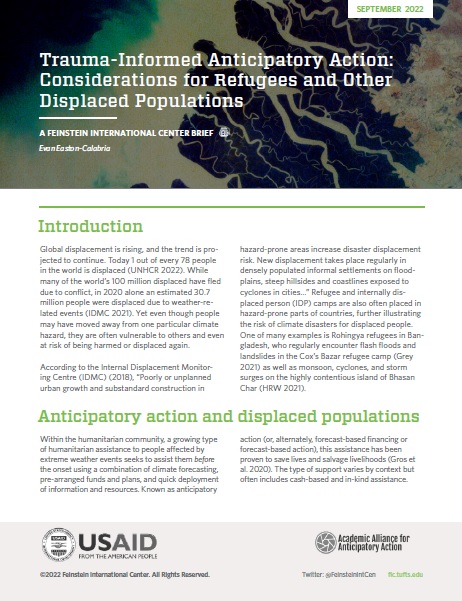Global displacement is rising, and the trend is projected to continue. Today 1 out of every 78 people in the world is displaced (UNHCR 2022).
The need for anticipatory action for displaced populations, including refugees, is significant. However, very few anticipatory action interventions directly focus on displaced populations in urban or camp settings. At the same time, refugees are at high risk for having traumatic experiences, and any action targeting them must take this into account.
A trauma-informed approach takes the existence or likelihood of traumatic experiences into account when engaging with recipients of assistance, implementing actions, and defining outcomes—all while actively avoiding re-traumatization. Building on an existing body of knowledge on trauma-informed practice in different settings, anticipatory action practitioners can build on these approaches by considering:
- Targeted communication campaigns for refugees distinct from those for host populations (language, medium, etc).
- Gaining trust to counter possible mistrust of authority figures.
- Encouraging mental health support in advance of and during extreme events.
- Building in time to build trust—which may not always be available in the case of fast-onset disasters.
This brief was written as part of the work of the Academic Alliance on Anticipatory Action (4As), a consortium of universities around the world seeking to inform and enhance anticipatory action. The 4As Consortium is funded by USAID and led by Tufts University in partnership with Bangladesh University of Engineering and Technology, Eduardo Mondlane University in Mozambique. Makerere University in Uganda, the National University of Lesotho, University of Namibia, and University of the Philippines.







